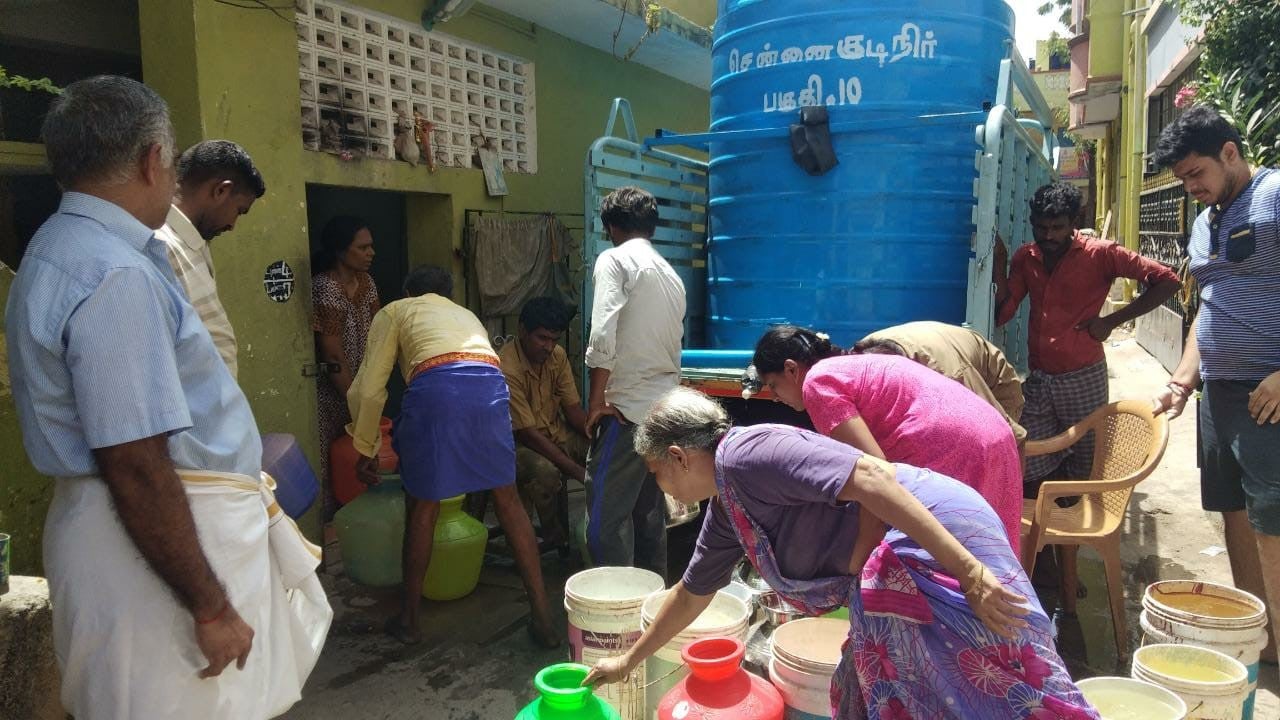 Since 2018, Chennai and its suburbs have obtained 50 to 60 percent of their water from private water tankers. Photo: Shutterstock
Since 2018, Chennai and its suburbs have obtained 50 to 60 percent of their water from private water tankers. Photo: Shutterstock
In 2019, barely four years after unprecedented floods brought Chennai to a halt, a severe water shortage hit India’s southern metropolis, and officials declared "Day Zero". To save the city, the size of New York, water had to be brought in by train from some 200 kilometers away.
Much thought has since been given to Chennai’s water woes. Now, taking a leaf from Singapore’s acclaimed initiative, the city has begun to recycle wastewater at scale to meet the non-drinking water needs of its industries.
The plants - at Kodungaiyur and Koyambedu – will serve industries in Chennai’s northern belt and the neighboring areas of Sriperumbudur, Oragadam and Vallamvadagal.
Industries here will receive water from sewage treatment plants that has been treated until it is of the same quality as the raw water that has traditionally been supplied to them.
Recycled water adds a new, more sustainable water source for the city – one that saves both fresh and desalinated water, is always available and is more reliable than rainfall which can vary from year to year
Not surprisingly, this pioneering initiative has received several global and national awards, including the Global Water Award, and HUDCO’s 2019 award for best practices that improve the living environment and increase city resilience.
The Kodungaiyur plant was supported by the World Bank, with co-financing from the central and state governments. Soon after construction began on this plant, the state government commenced work on the second plant at Koyambedu.
Chennai’s deteriorating water situation
Traditionally, this city of 9 million - which has some of the highest annual rainfall in India - has taken its water from four major lakes that are replenished by the annual monsoon rains. However, while Chennai needs around 1,200 MLD of water each year, these lakes, in their current condition, are only able to supply between 500 to 800 MLD a year, depending on the volume of rainfall that has occurred.
Recycled water therefore adds a new, more sustainable water source for the city – one that saves both fresh and desalinated water, is always available and is more reliable than rainfall which can vary from year to year.
In fact, a study by Anna University has calculated that by 2050, Chennai can meet up to 50 per cent of its water needs by recycling and reusing its sewage.
As urbanization proceeds apace, water resources dwindle, and rainfall becomes more unpredictable, each city will need to explore a variety of options to augment its water supply
Augmenting water resources in a financially and environmentally sustainable manner
Water is becoming a major challenge for most Indian cities. In 2018, a Niti Aayog report pointed out that India is suffering the worst water crisis in its history and that 600 million people – almost half the country’s population - face high to extreme water stress.
As urbanization proceeds apace, water resources dwindle, and rainfall becomes more unpredictable, each city will need to explore a variety of options to augment its water supply, depending on its geographic, geological, and socio-economic conditions.
Only then can we assure future generations that the measures adopted today have been taken after careful thought, bearing both human well-being and the sustainability of the planet in mind.




Join the Conversation